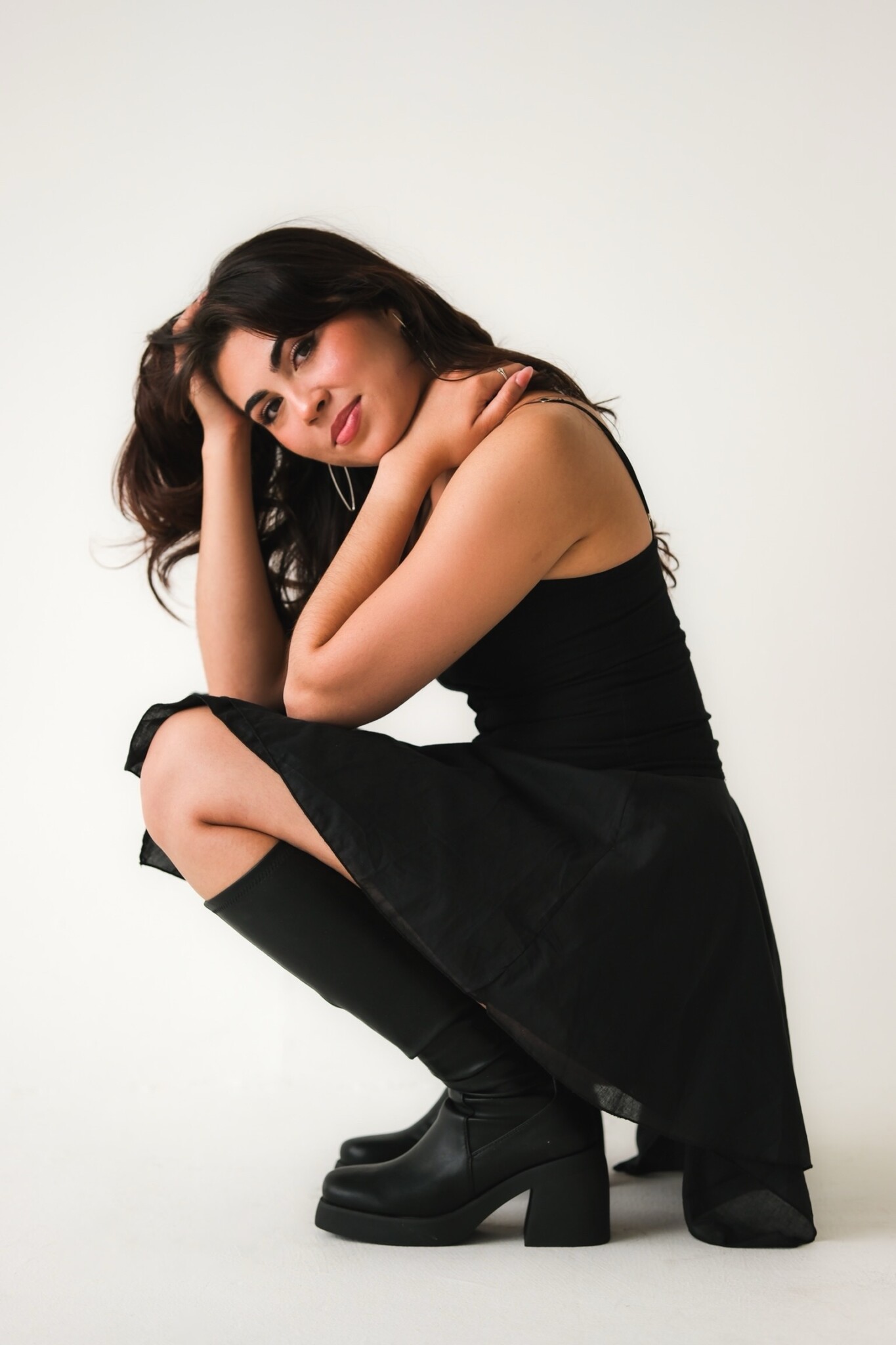We caught up with the brilliant and insightful Morgan Delaney a few weeks ago and have shared our conversation below.
Morgan , thanks for taking the time to share your stories with us today Can you take us back in time to the first dollar you earned as a creative – how did it happen? What’s the story?
My first paid gig was significantly meaningful because it came with a lesson.
My music education started when I was 20, which, to be honest, is quite late. Most of my peers began their study of music (whether in lessons or the like) in elementary school.
In the Spring of 2018, I enrolled at my local community college in a few music classes. One of them was a commercial music ensemble, which is essentially a Pop-Rock band. I was the only singer in my ensemble, which was a huge learning experience since that was truly my first time leading any sort of band. It was beyond fun, but also humbling. I was honored to be playing with people who had dedicated most of their lives to their instruments, while I was barely stumbling by. However, I was determined to make music a skill, and I’d like to believe that my peers saw that.
My professor of this ensemble saw that as well. She was the one who offered me my first “paid gig”, and it was an evening I will never forget. She came up to me after rehearsal and told me very bluntly, “You’re singing the national anthem at graduation”.
My jaw was on the floor, and as far as I was concerned, I was NOT going to be doing that. I was too nervous and too green. The national anthem felt like a debut I was not ready for.
I looked at her and said, “I don’t think I can do that”. She looked at me again and replied “Well, I already signed you up for it, and it pays 100 bucks”.
And then, she turned and walked away.
As shaken up as I was, I couldn’t help but walk out of the ensemble room with an enormous smile on my face. 100 bucks? To SING? Me? It almost felt unreal. I knew it was an honor to have been selected by my professor to do this. Music had always been something I’ve wanted to do, and only now, at 20 years old, did I feel brave enough to do it.
Graduation day came and went, and I sang the freaking national anthem. I was shaking in my boots before I walked on stage, but once it started, it was out of my hands. The music grabbed me, and all I remember was the applause after. No voice cracks, no shaking, no tripping while walking on stage, no disaster. I was starting to think that I could do this.
On top of all that–I was handed a check for 100 dollars. I couldn’t believe it. I would’ve done it for free! But, my professor told me, “You should never do ANYTHING for free unless it’s for your peers”.
She was training me to understand my worth as a musician and as a provider of a service. If they have the means to compensate you, then you should be compensated. Musicians are wildly susceptible to exploitation because this is our “passion”. Of course, you have to practice performance, but gigging for “exposure” at any facility that can compensate you (events, restaurants, schools, etc) is wrong. I’m not talking about open mics or events like that, but if any restaurant asks you to play for any amount of time for free, they’re stealing from you (no matter how green you are). Does anyone ask a chef to cater their wedding for free because they “love to cook”, or worse, “for exposure”? No. No, because the chef went to culinary school, has to pay for all of the ingredients, and does a massive amount of work the day of the event. It should not be any different for musicians.
Of course, there are exceptions, and people have their own code of conduct. Networking across is important to me, and I am more than happy to help my peers and friends with their projects free of charge. This isn’t everyone’s way of operating, but it’s mine.
My first dollar came with the lovely realization that someone believed in me, and one of the most important lessons a musician can learn.

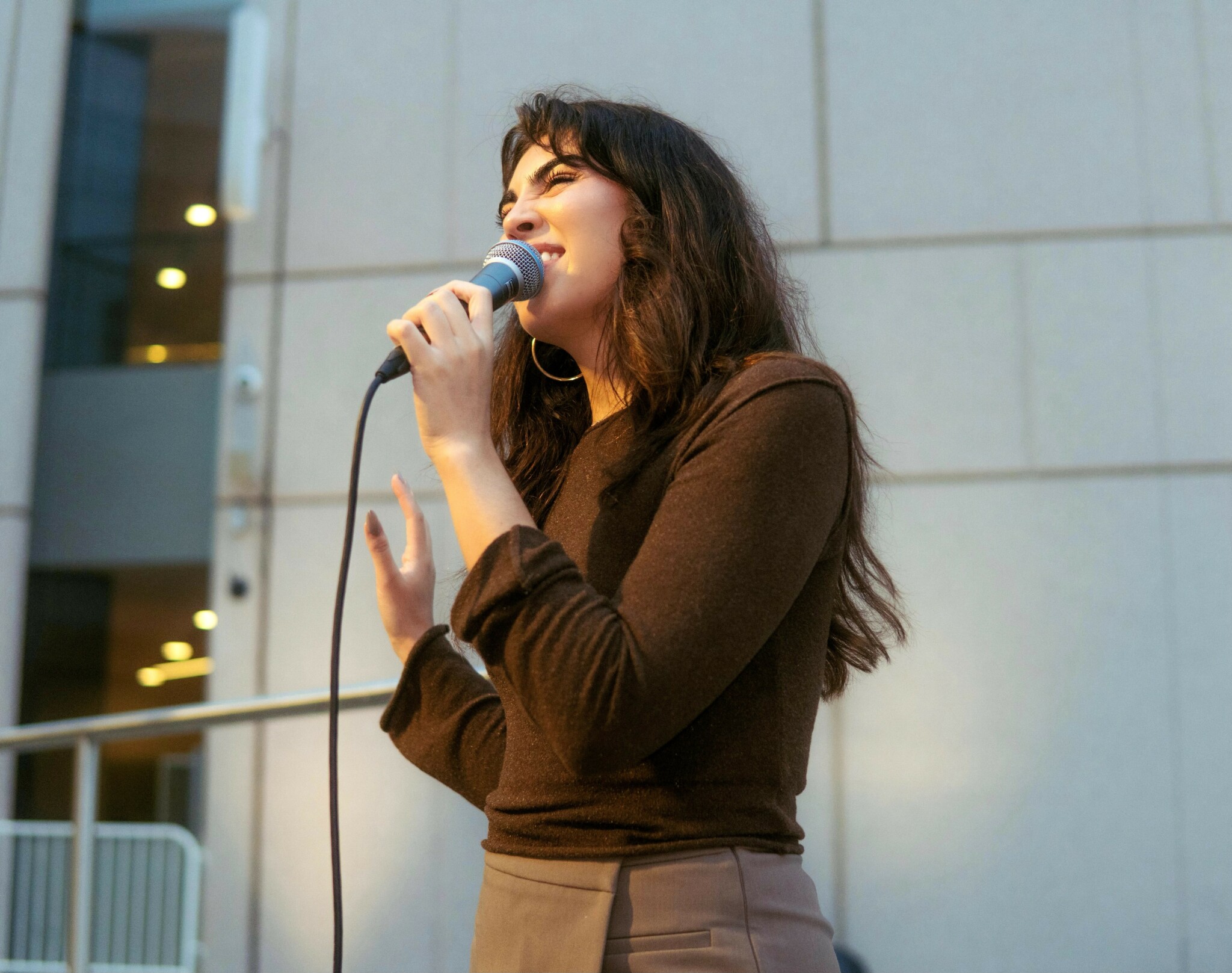
Morgan , love having you share your insights with us. Before we ask you more questions, maybe you can take a moment to introduce yourself to our readers who might have missed our earlier conversations?
My name is Morgan Zamora Delaney, and I am a vocalist and composer. At the moment, I am primarily singing jazz in theaters, playhouses, and venues around the Los Angeles/Orange County area, but I also write my own music, sing background vocals in sessions and on gigs, and sing in classical and contemporary choirs.
As a child, I’ve always had the desire to do music, but never the bravery. I would ask for pianos, guitars, and microphones for Christmas and then would do little with them. I was afraid to be wrong. In the fifth grade, I tried to join band and play flute, but that only lasted for one season. At the time, I didn’t have the support or discipline necessary to learn a musical instrument. My family is far from musical, and I went to a private school with a severely underfunded arts program. But, I was always singing. Singing in the shower, car, closet–wherever I could find privacy. There was always a song in my heart.
In high school, one of my friends heard me singing at my locker after volleyball practice. Without my knowledge, she signed me up for a choir audition. I was TERRIFIED and didn’t know any classical repertoire at the time, so I sang “Mother Earth and Father Time” from Charlotte’s Webb. I made the top choir and sang in that ensemble my junior and senior years of high school. It was a blast–but since I didn’t have the fundamentals of music (solfège, rhythm etc), I depended on my ear for most of that experience. When I entered college at Boston University, I did not feel brave enough to audition for any ensembles there, since I didn’t know how to sightread. However, I ended up auditioning twice for the acapella groups on campus, and on my second try, became a member of the BosTones.
Although I was participating in an acapella group, I still felt severely underdeveloped musically. I couldn’t sightread and was having many health issues with my voice. I suffered a vocal hemorrhage while in Boston, and it was a really dark time in my life. I was able to heal, but I knew that if I wanted to truly learn this craft, I was going to have to dedicate much more to it than I was and take much greater precautions. I made the difficult decision to take a permanent leave of absence from Boston University to finally pursue the craft of singing. My parents were furious because it felt like this decision was out of left field. However, I knew this was something I had to explore. If not now, when?
So, I enrolled in my local community college, and after a semester there, went to Fullerton College–which was about an hour’s commute from where I lived at the time. I would leave my house at 6:45 am, and leave campus at around 10:00 pm. I would do that Monday through Friday up until Covid-19 happened. Fullerton College taught me just about everything I know about music, and my time there is one I will never forget. I practiced for hours and took as many classes as I could. I was a bit too eager for my own good and certainly had my struggles there (again, many of my peers had been studying music for a long time), but eventually, my tenacity resulted in me receiving Jazz Voice Honors my last in-person semester and making the top ensembles at school. I am endlessly thankful to my mentors from Fullerton College for dealing with me while I was so green, and gently guiding me towards the right direction.
During Covid, I auditioned for conservatories and ended up at CSULB. I graduated with a degree in Jazz Studies (although I started as a classical voice major, which was an amazing experience as well), and won the DownBeat Magazine 2024 Student Awards for Jazz Vocalist of the Year.
My musical journey was filled with many, many no’s, and the only thing that kept me standing was my determination to get better. Talent is indeed just hard work in application, and music has shown me that I can do just about anything when I decide that “no” is just a “not yet”.

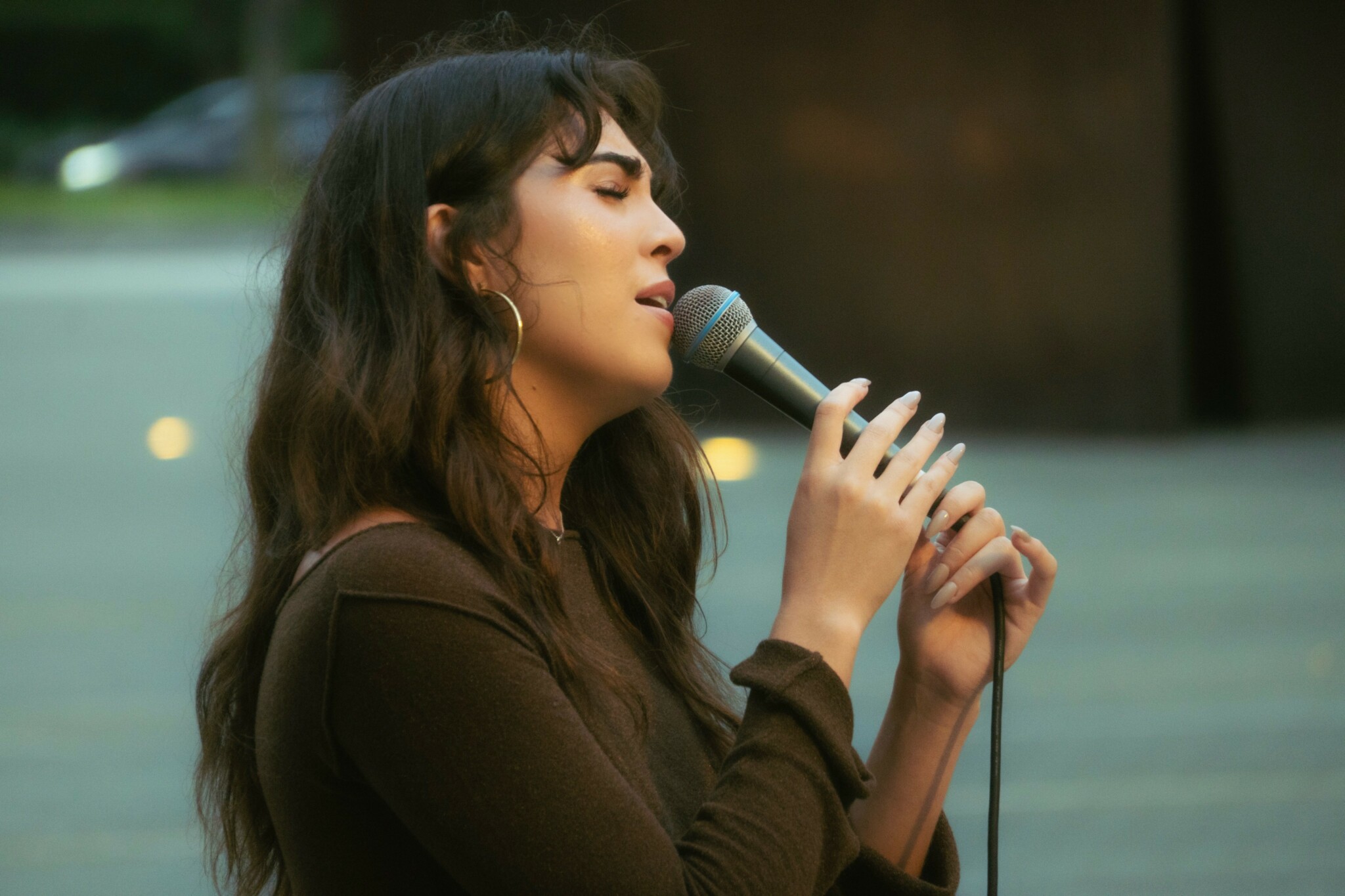
What do you find most rewarding about being a creative?
Being a jazz singer feels like being fluent in a musical language. I can show up to any gig with a band I’ve NEVER met, and play a three hour set. That feels like true magic. The best part is that the same song will never feel the same when you’re playing with different people. Every single player has their own musical mannerisms, and thus, every song is touched by that. That alone makes me respond differently. I’ll hold a phrase longer, make it shorter, choose different variations, all because I’m playing with someone else. Even playing with a guitar versus a piano elicits different choices from me. They mean it when they say that music is a conversation.
Some people live for the performance, the audience, or the applause. However, I live for the making of the music; I love the jams, recording sessions, and the rehearsals. Music for music’s sake is what I live for.
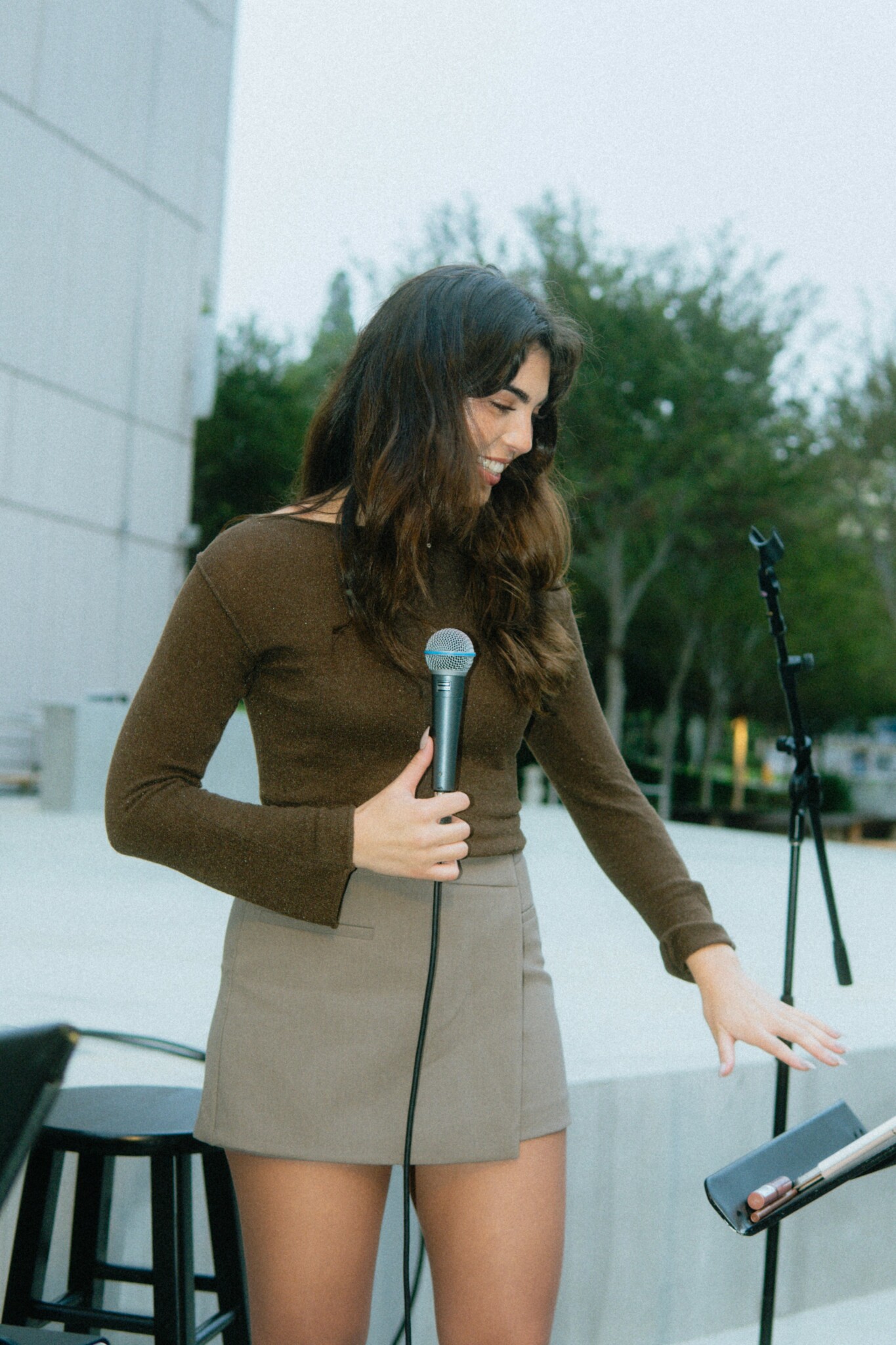
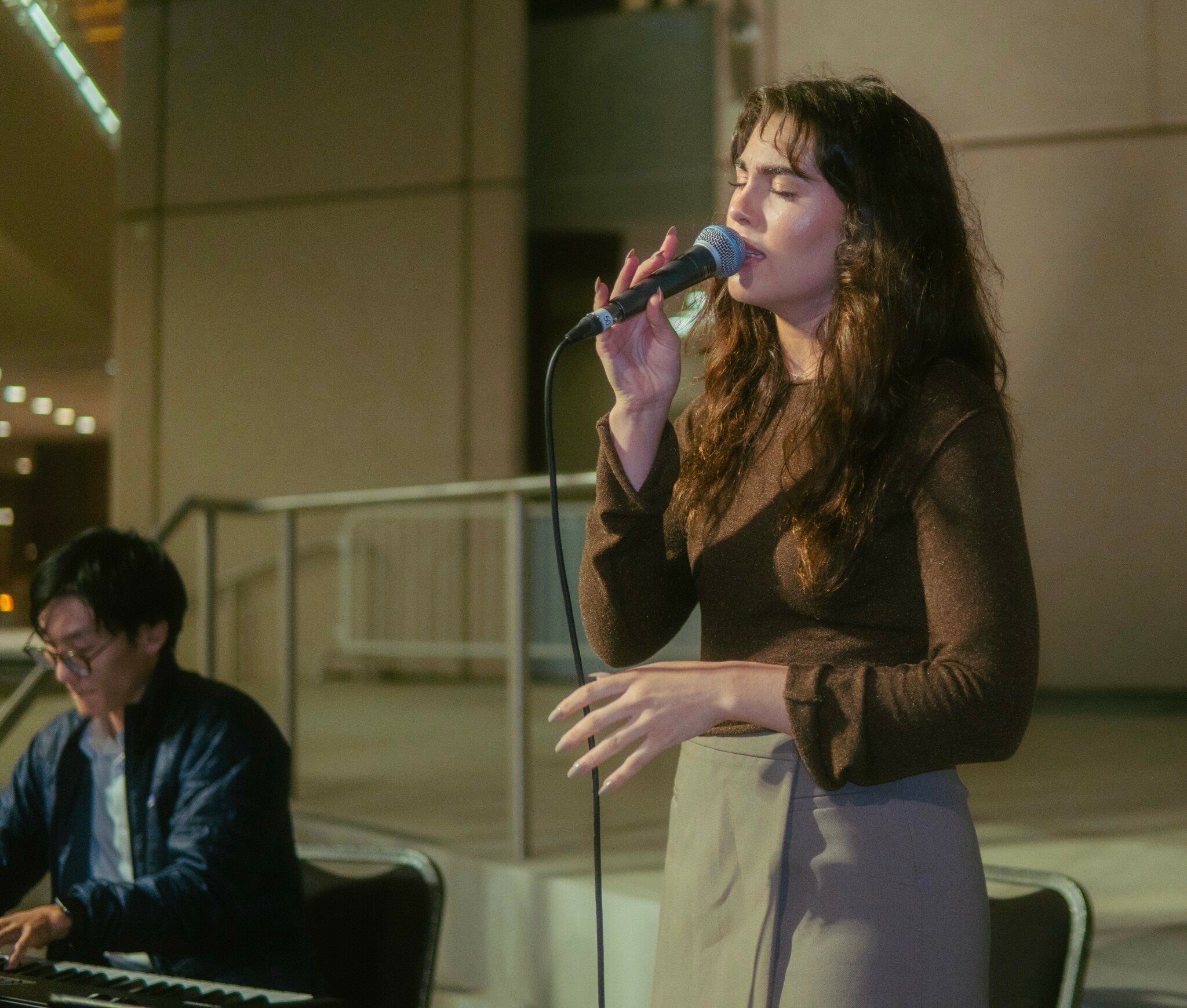
We often hear about learning lessons – but just as important is unlearning lessons. Have you ever had to unlearn a lesson?
I have dedicated the last five years of my life to music, and it is a journey that I am so thankful for. If I hadn’t done that, I know it would’ve been something I wondered about for my whole life. Receiving a degree in an art form that I only began learning five years prior feels almost unreal.
My obsession with learning music is what I can credit that accomplishment to, but it also created some pretty intense tunnel vision. I used to think that performance opportunities were the only opportunities I should be focusing on–that other experiences (like internships, administration opportunities, etc) would only muddy my reputation as a vocalist and performer. That could not have been MORE wrong.
The more diverse your experiences are, the more rich your music is, and the greater your employment opportunities are. Circumstances change from instrument to instrument, but as a vocalist, you typically run the whole show. You get the gig, get the band, and lead the band. You advertise, manage, and negotiate for yourself. Being a performing musician has also turned me into a whole business, and that in itself has had a huge learning curve.
The lesson in this is that the more varied your skills are, the more places you can apply them. I believe that musicians typically have to have many different jobs (whether that be teaching, arranging, copying, etc) to sustain a living. The larger your skill-set net is, the more options you have for employment and gigs.
Post-grad, I am deciding what to do next. Typically, many musicians go straight to graduate school once getting their undergraduate degree. I decided to take a year (or two) to see what lifestyle I can create for myself, but also what lifestyle I am looking for. While music will always be a main focal point of my life, I see now that diversifying my skills is really vital, and pursuing interests outside of music is important for the music you create. I am considering graduate school, but I am also considering graduate school outside of music. My heart is full of many passions, and I want to make sure that I am being true to that, as well. However, I know music will always be a large pillar in my life–nothing will change that.
Contact Info:
- Instagram: https://www.instagram.com/m0rganizm/?hl=en
- Linkedin: https://www.linkedin.com/in/morgan-zamora-delaney
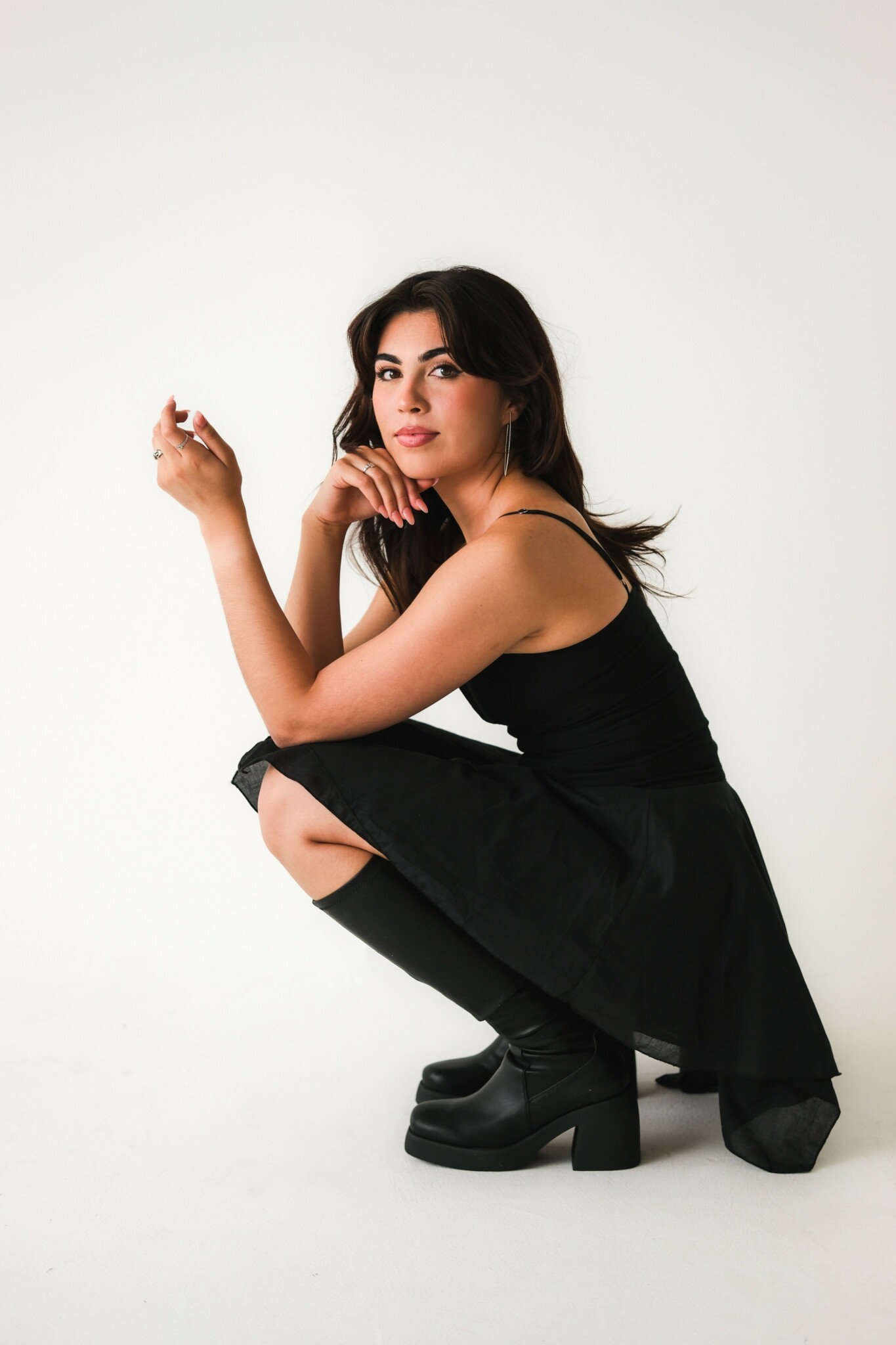
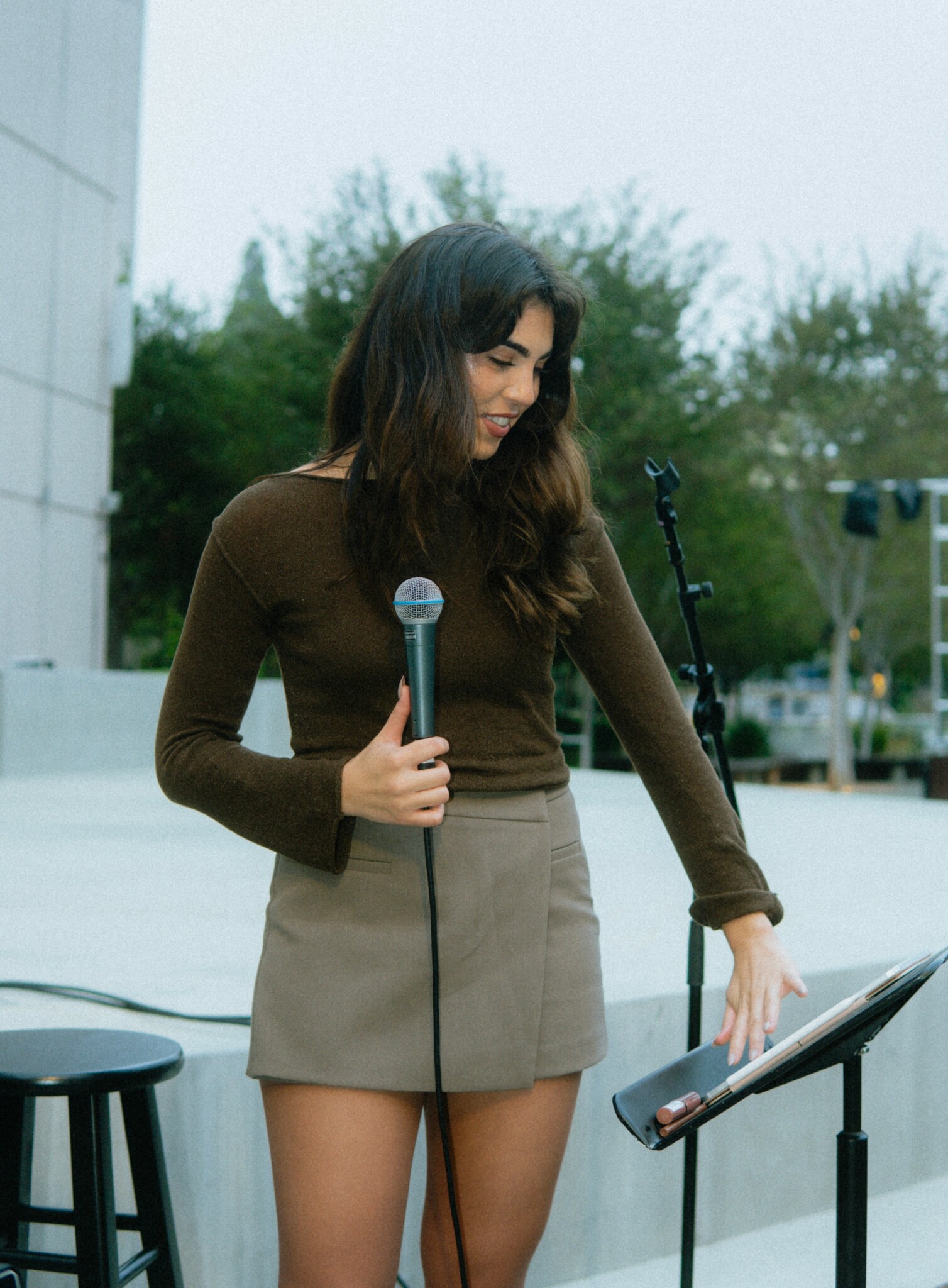
Image Credits
Jordan Fox (all photos in the black dress and white background), Sungbin Moon (all live-action photos).


